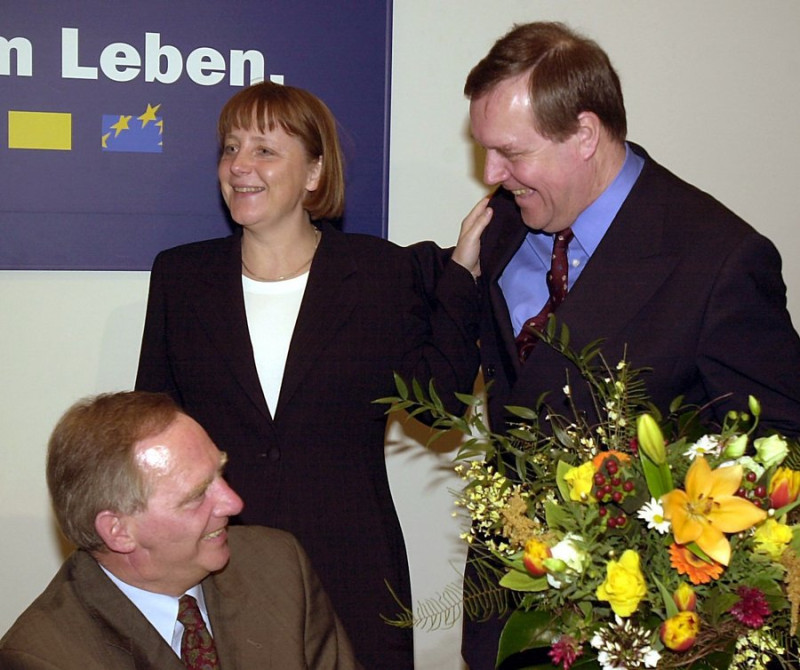Sometimes controversial, but emblematic figure of the conservative faction in Germany, Wolfgang Schäuble, former speaker of the parliament, “passed away” yesterday
Even his political opponents recognized his deeds. “For 50 years you have been present in the Parliament, you have been elected in 14 electoral contests, this is a unique achievement,” pointed out the president of the Federal Parliament Berbel Bass, an official of the Social Democratic Party (SPD). Credit was directed at her predecessor, Wolfgang Schäuble, leader of the Christian Democrats (CDU), who died yesterday aged 81.
“I detest the political veterans who mix everywhere,” he said in an interview with the newspaper Süddeutsche Zeitung. He wanted to speak his mind, but only when asked. Which of course happened many times in recent years, because Wolfgang Schäuble was now considered an “elder statesman”, an intellectual of the conservative faction with insight and strategic thinking.
The man who would become king
He was elected to the Bundestag for the first time in 1972. He had done it all: Head of the parliamentary group, director of the chancellery, chairman of the CDU, minister of the interior and finance, speaker of the parliament. For Germans, Wolfgang Schäuble’s big moment came on August 31, 1990. On that day, as interior minister in Helmut Kohl’s government, Schäuble co-signed the German Reunification Treaty with his East German counterpart Gunder Krause. In June 1991, Schäuble’s speech to Parliament convinced the last undecideds to vote in favor of moving the capital from Bonn to Berlin. “Here we are not talking about a competition between two cities,” he said. “With all due respect, the issue is not about jobs or the cost of moving. We are talking about the future of Germany here.”
Many believed that Wolfgang Schäuble would succeed Helmut Kohl in the chancellorship. But the blows he received were hard and successive. In October 1990, during a campaign rally, a psychopath attacked him with a shotgun. Doctors would save his life, but since then he has remained confined to a wheelchair. He did not give up, quickly returned to the Ministry of the Interior and in 1991 was appointed head of the parliamentary group of the ruling Christian Democratic Party.
In November 1999 the “black funds” of Helmut Kohl were revealed. The chancellor refused to name his secret financiers. There was no evidence of Wolfgang Schäuble’s involvement, but a short time later a new donation of 100,000 euros put him in a difficult position. Schäuble believed that while he supported Kohl, he did not reciprocate his support. Shortly before Christmas, Angela Merkel, in an article in the Frankfurter Allgemeine Zeitung (FAZ), called for a “new beginning” for the CDU. He had not informed Schäuble about the article, and when he asked for an explanation, he gave him the disarming answer: “If I asked you for approval, you wouldn’t give it to me.”
Fiscal discipline for Europe
Under the weight of the developments in February 2000 Schäuble resigned from the leadership of the CDU. The era of Angela Merkel was beginning, who, however, not only did not set Schäuble aside, but assigned him very important portfolios, initially the Ministry of the Interior and from 2009 the Ministry of Finance. For the first time in 45 years, Schäuble prepared a balanced budget. It required fiscal discipline in Germany, but also in Europe. At the time, Johannes Kars, the budget spokesman for the co-ruling Social Democrats (SPD), told German Radio (DLF) about the finance minister: “He knows how to control his reactions, he knows well what he wants and how to get it, not necessarily in a friendly way”.
At the time of the Euro-crisis, the preacher of fiscal discipline could not help but acquire fanatical friends, but also opponents. His proposal for a “temporary” exit of Greece from the eurozone did not pass. Many years later, in July 2022, Schäuble will declare to the newspaper TA NEA that he “did not want to harm Greece” and that the idea of a temporary Grexit “had been supported by the large majority of finance ministers in the Eurogroup”. Of course, he pointed out himself that the path of “internal devaluation” that was finally chosen had a great cost for the Greeks. But wouldn’t the “other” devaluation path have (at least) the same cost?
Those who think that Schäuble does not have a “vision for Europe” are probably wrong. Only this vision provided for strict criteria for membership in the EU “club”. Schäuble’s proposal for a “multi-speed Europe”, which he first presented in 1994 together with his colleague Karl Lammers, has been partially realized , despite the intense reactions it caused at the time. Schäuble’s signature is also on the proposal for “privileged cooperation” with Turkey, instead of full membership in the EU. In recent years, Schäuble supported the proposal to abolish unanimity in decision-making in the EU. Many times he was divided, but his reason counted. After all, there were not many German politicians who spoke at the Sorbonne, in French, about the future of Europe and saw the audience give them a standing ovation. Wolfgang Schäuble had also achieved this.
Source: DW
Source :Skai
With a wealth of experience honed over 4+ years in journalism, I bring a seasoned voice to the world of news. Currently, I work as a freelance writer and editor, always seeking new opportunities to tell compelling stories in the field of world news.















